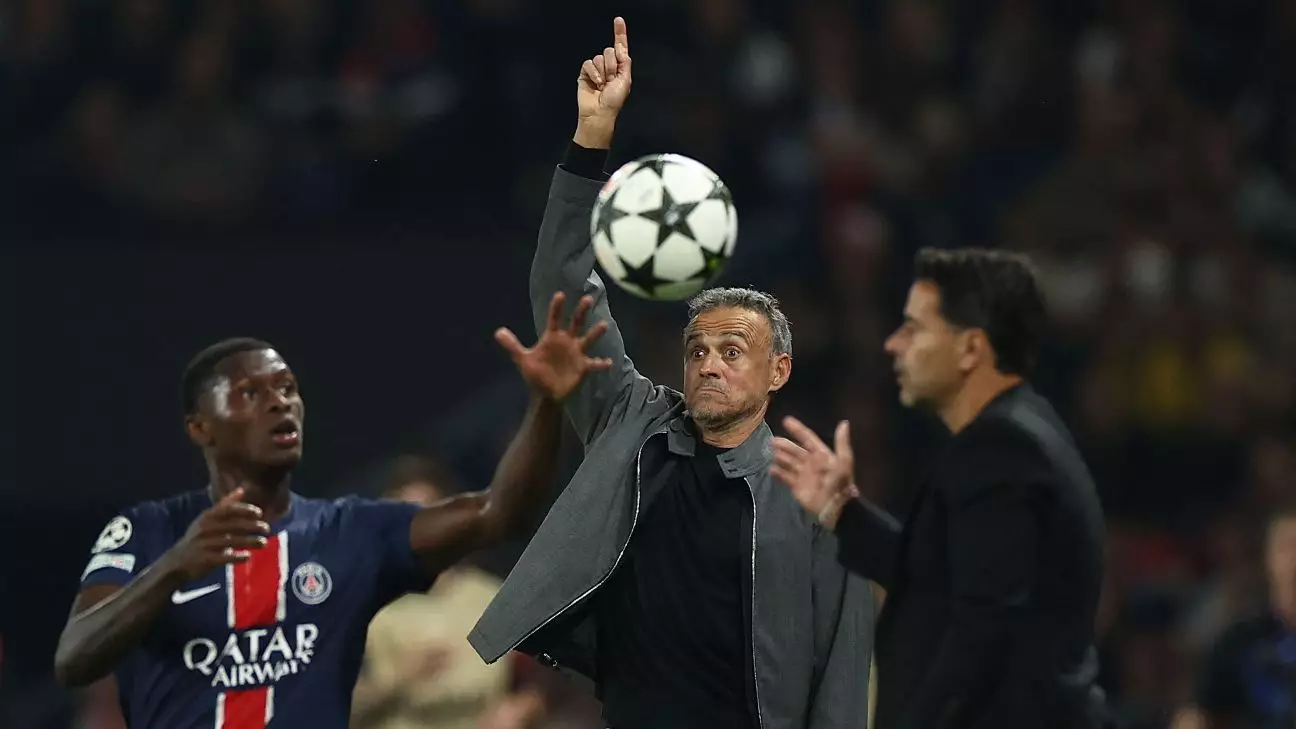The return of European football is always met with enthusiasm, yet this season’s Champions League introduces a fresh complexity that adds an element of uncertainty. Following their narrow 1-0 victory over Girona, Paris Saint-Germain’s (PSG) manager Luis Enrique expressed the difficulties of evaluating the triumph amidst the chaos of a revamped competition structure. His sentiments encapsulate the challenges faced not only by PSG but also by clubs navigating this nascent format, where winning may not necessarily equate to linear progress.
Under the modified structure of the Champions League, gone are the familiar group stages, replaced by a league format that forces teams into eight matches against eight different clubs. This change introduces a multitude of variables that complicate how success is measured. Enrique’s reflections call attention to the harder task of assessing victories in a league system where the level of competition may vary greatly. “How many points are we going to need?” he pondered, highlighting the ambiguity that permeates this season’s early matches—an uncertainty that could lead to varied interpretations of a team’s real strength and form.
Moreover, as European giants like PSG face clubs with potentially favorable schedules, the landscape becomes even more unpredictable. Enrique’s analysis positions his team at a crossroads, requiring them to adapt quickly while accounting for the high stakes inherent in each encounter. The manager’s concern reinforces the idea that while they emerged victorious against Girona, the value of such a win cannot be fully grasped until teams have traversed this dangerous new terrain.
Victory Tainted by Unforeseen Challenges
Despite PSG’s dominance for significant stretches of the match, it was a costly blunder from Girona’s Paulo Gazzaniga that ultimately sealed their fate. This moment of misfortune illustrates how games within this revised league phase could hinge on unexpected incidents, rather than purely tactical superiority. Enrique’s remarks that “we were superior, but Girona played us in circles” acknowledges the strategic challenges his team faces, recognizing that a strong performance does not always lead to clean victories.
In addition to the tactical trials presented by Girona, PSG’s squad depth was also tested as Marco Asensio left the field limping, casting a shadow over their win. Enrique’s readiness to back his team despite injury concerns speaks of strong squad cohesion, yet it raises critical questions about the resilience and adaptability necessary for success in this new format. His assertion that professional football is fraught with uncertainties—a truth ever more evident in moments like these—reinforces the precarious nature of leading a top-tier team.
Girona’s Determination: Lessons from Defeat
From Girona’s perspective, while the defeat stings, manager Michel’s response is emblematic of a constructive approach to setbacks. Praising his squad’s effort and the impressive interceptions by Gazzaniga until the moment of failure expresses a mindset focused on growth and improvement. His words reveal the essence of competition: recognizing the hurdles faced against a formidable opponent yet drawing pride from the endeavor itself.
Michel’s comments about the importance of pride in their performance may resonate within their locker room, fostering a spirit of resilience essential for future matches. As they prepare for their La Liga clash against Valencia, the lessons drawn from this encounter will be invaluable for Girona as they seek to build on their competitive spirit in the weeks to come.
The upcoming fixtures present a mixed bag of expectations for both PSG and Girona. For PSG, a critical away match against Reims will test their ability to maintain momentum while grappling with the psychological weight of their recent victory tinged with uncertainty. For Girona, the challenge against Valencia will not only be about results but leveraging newfound insights from playing against one of Europe’s elite.
Ultimately, the season’s unfolding will hinge on how teams reconcile their performances with the demands of this newly introduced Champions League format. The complexities of the competition may redefine the very nature of success, making the journey more intricate for clubs striving for excellence. In this evolving narrative, each match will tell a story of trials, triumphs, and the unforeseeable nature of athletic contests against the backdrop of one of football’s premier tournaments.

